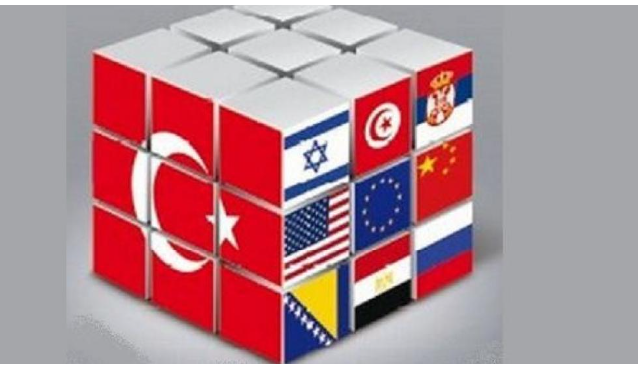For the first time in twenty years, a change of leadership in Turkey is possible. The EU must be prepared for the foreign policy shift an opposition victory would bring…
Whether in the first round on May 14 or the second on May 28, Turkey’s presidential election will ultimately be fought between the incumbent president, Recep Tayyip Erdoğan, and opposition leader Kemal Kılıçdaroğlu.
If the former wins another five-year term, the script is already written. Although the Turkish leadership might dial down some of its divisive rhetoric, tensions over Turkey’s foreign policy orientation and the decay of democratic freedoms would remain obstacles to meaningful improvements. Western partners would have to manage continued disruption.
If the opposition candidate wins, Western leaders will need to face massive consequences. Ankara will move promptly to normalize its relationship with NATO. But some of the current divergences, for example on Cyprus and Syria, will not go away. On the positive side, the rule of law will be reinstated and relations with the EU improved—though not eased.
By far the most significant change will concern security and defense
If, as announced, a new Turkish leadership would return to a playing a more constructive role within NATO while maintaining solid economic relations with Russia, the strategic implications would be momentous.
First, Turkey would make efforts to stop Russia evading Western sanctions in a number of sectors. Second, Ankara may immediately end its opposition to Sweden’s accession to NATO. Third, it may decide a sizeable military involvement in the alliance’s reassurance operations on its Eastern flank, from Estonia to Romania.
Fourth, it may consider ending the presence on Turkish soil of S-400 missile batteries delivered by Russia in July 2019. And fifth, as a consequence of the previous move, Turkey may engage in discussions about acquiring and/or developing a NATO-compatible missile defense architecture. This would facilitate the modernization of Turkey’s air force fighters’ fleet.
Involving by nature the United States, the EU, and NATO, these discussions would have a tangible impact on the security of the European continent. They would also radically change the political perception of Turkey. Conversely, each and every of these moves would be fought back by Russia, which would pressure Turkey using various means: gas supplies and transit; the Akkuyu nuclear-powered electricity plant it owns and will operate; tourists flows; agricultural purchases.
Syria: Russian pressure, little hope for expatriation of refugees
With Syria, Turkey’s new leadership would have two clear objectives: reconciling with Syrian president Bashar al-Assad and returning Syrian refugees to their homeland. An immediate consequence of a Turkish-Syrian normalization would be an increased difficulty for the anti-ISIL alliance, as the presence of U.S. and allied forces in and around Syria would be contested.
Simultaneously, in order to proceed toward normalization, Ankara would come under immediate pressure from Damascus and Moscow to withdraw its forces from the four areas where they are currently deployed—Idlib, Afrin, Jarabulus, and the area between Tell Abyad and Ras al-Ain.
In addition, a policy aimed at returning Syrian refugees to their homeland would raise the issue of the absence of any internationally agreed legal framework for such a massive transfer of population. This, in turn, would have an impact on the EU’s own refugee pact with Turkey. More generally, by joining the emerging Arab consensus to accept Assad’s return to international legitimacy, Ankara would distance itself from the West’s policy of non-engagement with the Syrian president.
Cyprus: A major bone of contention
Another major bone of contention, especially with the EU, would be Cyprus. Irrespective of whether Turkey’s new leadership would favor to the current option of a two-state solution, any discussion on a comprehensive Cypriot settlement would remain arduous. Issues such as the status of the Turkish-speaking community, the exploitation of underwater resources, and the consequences of Turkey’s non-recognition of the Republic of Cyprus would remain very difficult to resolve.
Major benefit: Re-institutionalization of foreign policy
Overall, foreign policy divergences would not vanish with the election of Kılıçdaroğlu. In light of the limited exchanges between the foreign policy specialists of the “Table of Six”—the opposition coalition’s nickname—and Western institutions, one important element has already emerged: a professional and dignified dialogue would be reinstated between Ankara and Western capitals. This would be a major relief for Berlin, Brussels, London, Paris, and Washington D.C.
Outside the security field, another major improvement would be the gradual return to a rule-of-law architecture closer to Western standards: a number of political prisoners would be freed without delay; reforms concerning the judiciary, the media, and the civil society would be launched; and a return to a parliamentary system would be put in motion.
Overall, when completed, such a virtuous circle would have major benefits: Turkey’s citizens and workforce would feel a sense of relief and reconciliation while foreign business partners would view Turkey in a much-improved light. The introduction of a more understandable economic policy, especially in the monetary field, would greatly contribute to increasing Western investors’ confidence. With the EU specifically, a political dialogue would be relaunched and the entire relationship revisited.
The downside: Division of power
The above scenario faces a number of hurdles: the resilience of the incumbent leadership; potential divergences within the opposition coalition; the possibility of a cohabitation between a new president and a hung parliament; predictable objections from Russia; anti-Western or anti-European sentiments across Turkey’s political spectrum; and a lack of unanimity among European capitals on how to deal with a change of leadership in Ankara.
These are compelling reasons for Western leaders, especially in Europe, to prepare for the hypothesis of such a political change.
By Marc Pierini and Francesco Sicardi, link to original article is here
Follow our English language YouTube videos @ REAL TURKEY: https://www.youtube.com/channel/UCKpFJB4GFiNkhmpVZQ_d9Rg
And content at Twitter: @AtillaEng
Facebook: Real Turkey Channel: https://www.facebook.com/realturkeychannel/
